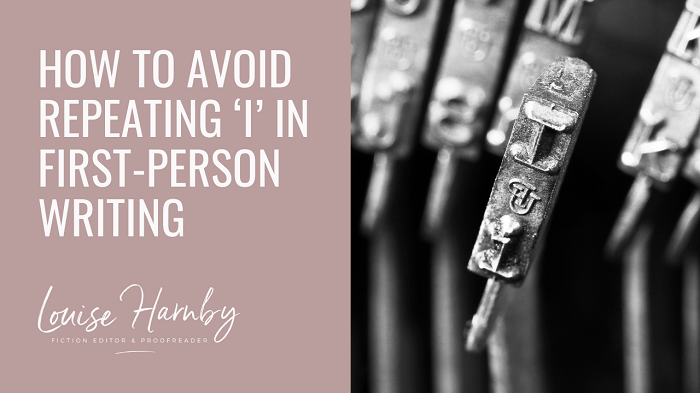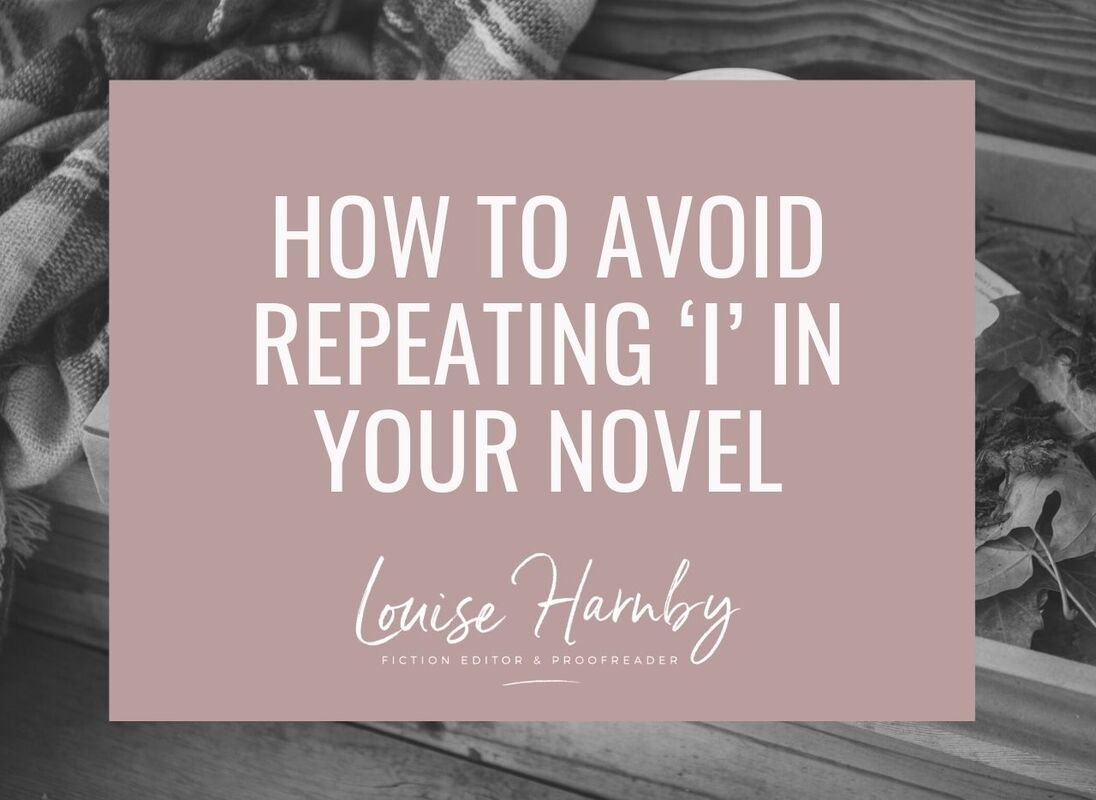|
Your novel’s written in first person. Here are some tips for how to ensure your narrative doesn’t become overloaded with ‘I’ but remains immersive.
|
|
Maycomb was an old town, but it was a tired old town when I first knew it. In rainy weather the streets turned to red slop; grass grew on the sidewalks, the court-house sagged in the square. Somehow, it was hotter then; a black dog suffered on a summer’s day; bony mules hitched to Hoover carts flicked flies in the sweltering shade of the live oaks on the square. Men’s stiff collars wilted by nine in the morning. Ladies bathed before noon, after their three o’clock naps, and by nightfall were like soft tea-cakes with frostings of sweat and sweet talcum.
People moved slowly then. They ambled across the square, shuffled in and out of the stores around it, took their time about everything. A day was twenty-four hours long but seemed longer. There was no hurry, for there was nowhere to go, nothing to buy and no money to buy it with, nothing to see outside the boundaries of Maycomb County. But it was a time of vague optimism for some of the people: Maycomb County had recently been told that it had nothing to fear but fear itself. |
Notice the (almost) absence of ‘I’. Scout – our narrator – tells us about the town she lived in: Maycomb. The recollection is hers certainly – ‘when I first knew it’ anchors it as such. It’s therefore intimate.
And yet because there’s only one I-nudge, we’re allowed enough emotional distance to step back and pan, like a roving camera, across Maycomb’s vista. We’re dislocated from Scout’s doing the experiencing and encouraged instead to focus on what she’s experiencing.
What’s happening here is a shift from the subjective to the objective.
Here’s an example of a short excerpt that’s subjective. The focus is on the I-narrator.
And here’s the real excerpt from David Rosenfelt’s Play Dead (Grand Central, 2009, p. 19). Now the focus is objective, yet in no way does this distance us from the centrality of the first-person narrator’s experience. We’re still deep in his head.
2. Reduce the use of filter words
Examples include noticed, seemed, spotted, saw, realized, felt, thought, wondered, believed, knew, and decided.
Filter words focus the reader’s gaze inwards (interior focus) on the manner through which the viewpoint character experiences the world – the how.
They come with a pronoun: I saw, they believed, we decided, she knew, he noticed.
By removing filter words, the reader’s gaze is shifted outwards (exterior focus) and onto what is being experienced. That can make for a more immersive read. Plus, the omission means we say goodbye to their accompanying pronoun: 'I'.
Here are a few examples to give you a flavour of how you might recast in a way that avoids first-person filtering.
|
‘I’ plus filter word. Reader’s gaze is inwards, on the how
|
Recast: Reader’s gaze drawn outwards towards the what
|
|
I recall the argument we had last week.
|
Last week’s argument is still fresh in my mind.
|
|
I recognized the man’s face.
|
The man’s face was familiar.
|
|
I saw the guy turn left and dart into the alley.
|
The guy turned left and darted into the alley.
|
|
I spotted the red Chevy from yesterday parked outside the bank.
|
There, parked outside the bank, was the same red Chevy from yesterday.
|
|
I still feel ashamed about the vile words I unleashed even after all these years.
|
The vile words I unleashed still have the power to bathe me in shame even after all these years.
|
3. Remove speech and thought tags
This will work best if there are no more than two characters. Most writers don’t extend the omission for more than a few back-and-forths before they introduce a reminder tag or an action beat.
Watching out for unnecessary tags is good practice regardless of narration style, but with a first-person narration it’s a particularly efficient way to declutter ‘I’-heavy prose.
Take a look at this excerpt from David Rosenfelt’s Play Dead, pp. 194–5. There are two characters in this scene: Andy Carpenter, the protagonist and narrator, and Sam Willis, the non-POV character on the other end of the phone.
“The woman's name is Donna Banks. She lives in apartment twenty-three-G in Sunset Towers in Fort Lee. I don't have the exact address, but you can get it.”
“Pretty swanky apartment,” he says.
“Right. I want you to find out the source of that swank.”
“What does that mean?”
“I want to know how she can afford it. She doesn't work, and she's the widow of a soldier. Maybe her name is Banks because her family owns a bunch of them, but I want to know for sure.”
“Got it.”
“No problem?” I ask. I'm always amazed at Sam's ability to access any information he needs.
“Not so far. Anything else?”
“Yes. I left her apartment at ten thirty-five this morning. I want to know if she called anyone shortly after I left, and if so, who.”
“Gotcha. Which do you want me to get on first? Although neither will take very long.”
“I guess her source of income.”
“Then say it, Andy.”
“Say what?”
“Come on, play the game. You're asking me to find out where she gets her cash. So say it.”
“Sam …”
“Say it.”
“Okay. Show me the money.”
“Thatta boy. I'll get right on it.”
The exchange involves 19 speech elements within the thread, but only 3 speech tags, and only one of those marks our first-person narrator.
At no point do we lose track, and at no point are we distracted by repetitive ‘I said’s.
4. Apply the principles of free indirect speech
In a nutshell, free indirect speech offers the essence of first-person dialogue or thought but through a third-person viewpoint. The character’s voice takes the lead, but without the clutter of speech marks, speech tags, italic, or other devices to indicate who’s thinking or saying what.
Here’s an example of third-person narration. Notice the filter words ‘glanced’ and ‘noticed’, the italic present-tense thought, and the thought tag:
Let’s change that to a first-person narration. The filter words are still there and there’s a thought tag with the ‘I’ pronoun.
Here’s what the third-person version could look like in free indirect style. The filter words and tags are gone. It feels like a first-person thought but the base tense and third-person narration remain intact.
And now the first-person version. All I’ve done is swapped out the pronoun ‘his’ for ‘my’.
5. Take the ‘I’ out of introspection
However, when prose is littered rather than peppered with constructions such as I wasn’t sure if, I didn’t know whether, I wondered if, it can feel muddled and be laborious to read. The reader might respond: Well, of course you’re wondering. Who else could it be? You’re the narrator.
Worse, readers might think the narrator’s rather self-absorbed and unsure of themselves. While that might be necessary now and then, it’s problematic if it’s a staple because a narrator who’s always focused on themselves, and who never instils confidence in us, can’t tell the story as effectively.
Look out for ‘I’-centred introspection and experiment with statements and questions that allow the ‘I’ to be assumed.
Here are a few examples to show you how it might work.
|
‘I’-centred introspection
|
‘I’-less introspection
|
|
I wasn’t sure if Shami was a reliable witness but I couldn’t afford to ignore her, given what she’d divulged.
|
Was Shami a reliable witness? Maybe, maybe not. She couldn’t be ignored given what she’d divulged.
|
|
I still didn’t know who the killer was.
|
The killer’s identity was still a mystery.
|
|
I wondered whether Shami was a reliable witness.
|
Shami might or might not be a reliable witness.
Shami’s reliability as a witness was hardly a given. Shami’s reliability as a witness was questionable. |
6. Balance ‘I’ with ‘we’
This is an opportunity to frame the narrative around ‘we’ rather than just ‘I’.
Here’s an excerpt from To Kill a Mockingbird (p. 162) in which Scout, Harper Lee’s first-person narrator, frames the recollection around not just her own experience but those of the people she was hanging out with.
A wagonload of unusually stern-faced citizens appeared. When they pointed to Miss Maudie Atkinson's yard, ablaze with summer flowers, Miss Maudie herself came out on the porch. There was an odd thing about Miss Maudie – on her porch she was too far away for us to see her features clearly, but we could always catch her mood by the way she stood. She was now standing arms akimbo, her shoulders drooping a little, her head cocked to one side, her glasses winking in the sunlight.
The effect is powerful because we’re shown rather than told a sense of her belonging, of her being in a group, of the togetherness of that experience. And that intensifies our immersion in her world.
Summing up
Try recasting sentences that start with ‘I’ more objectively, so that the focus is on the what – the emotion, the object, the person, the action and so on – rather than the sense being used to experience it or the I-narrator doing the experience.
Use the principles of free indirect speech to reduce your ‘I’ count. It’s a tool that encourages a narrowing of narrative distance to such a degree that the reader feels deeply connected to the viewpoint character – more like we’re reading a thought than straight narrative.
As for speech and thought tags, you might not need as many as you think. The speaker can usually be identified without them if there are only two people in the conversation. Removing redundant tags is worth considering whichever narration style you’re writing in.
Related resources
- 3 reasons to use free indirect speech
- 6 ways to improve your novel right now
- Author resource library (includes links to free webinars)
- Editing Fiction at Sentence Level: A Guide for Beginner and Developing Writers
- Filter words in fiction: Purposeful inclusion and dramatic restriction
- Making Sense of Point of View: Transform Your Fiction 1
- What is head-hopping, and is it spoiling your fiction writing?
- Switching to Fiction: Course for new fiction editors
She is an Advanced Professional Member of the Chartered Institute of Editing and Proofreading (CIEP), a member of ACES, a Partner Member of The Alliance of Independent Authors (ALLi), and co-hosts The Editing Podcast.
- Get in touch: Louise Harnby | Fiction Editor & Proofreader
- Connect: Twitter at @LouiseHarnby, Facebook and LinkedIn
- Learn: Books and courses
- Discover: Resources for authors and editors
Hey, I stumbled across your blog when reading some truly awful research papers. Glad I did, concise, clear yet detailed explanations of various literary terms I was previously ignorant of.
With that said: "At no point do we lose track, and at no point are we distracted by repetitive ‘I said’s."
I have to admit I struggled to follow that excerpt, repeatedly rereading to make sure I understood the speaker.
Prompted two thoughts, without context and familiarity of the characters it is far more difficult to follow whose speaking. A developed character speaks with unique rhythm tone and structure. If you are familiar with their style then it is easy to distinguish. An excerpt lacks that foreknowledge, if you write a very short story the otherwise superfluous descriptors gain importance.
Secondly, I was wondering if you as an experienced editor who understands how authors are trying to structure prose, intrinsically know what they are trying to convey. When proof-reading, I imagine you don't just follow the text but are perceiving the various linguistic components such that you keep track even if it is ambiguous. I also wondered if that applies when you casually read fiction, do you find yourself analysing the text instead of immersing within the story?
Is it a difficult for editors to remove speech and thought tags since for them the flow is obvious yet are editing for general public consumption? My father has written many public health books, he prides himself for using plain English. Public health literature often falls into two categories, Doctors who use a plethora of medical terms and clinical explanations requiring expertise to even understand versus treating the public like idiots, with infantile simplifications that patronise the reader and are ultimately misleading.
My Da has talked to me about how difficult it is to straddle that balance. Is this something you struggle with, the urge to improve the flow by removing perceived extraneous words versus trying to put yourself in the shoes of the average reader?
I had no difficulty following the flow of dialogue and determining who the speaker is. Most of the lines wouldn't make sense in the mouth of the other character anyway.
However, there is one place where a line break is missing (after "information he needs") that confused me, but I assume that's merely a transcribing error. It happens.
Thanks, C. I fixed that line error.
Hi, bearedchimp.
When I'm line editing, I can't pretend to know every time what an author's trying to convey. But I'll always offer suggestions when there's ambiguity and check in with the author to make sure we're on the same page.
When I read fiction for pleasure, I put the reading first. I sometimes spot useful teaching examples but I don't dwell on analysing the text. A group of people have already taken the book through an editorial process and made decisions with the author, so I focus on being entertained!
As for your final query, I don't think there's a conflict in improving flow and putting the average reader first. It's not a 'versus' issue for me. I think the former supports the latter!
Leave a Reply.
BLOG ALERTS
TESTIMONIALS
Dare Rogers
'Louise uses her expertise to hone a story until it's razor sharp, while still allowing the author’s voice to remain dominant.'
Jeff Carson
'I wholeheartedly recommend her services ... Just don’t hire her when I need her.'
J B Turner
'Sincere thanks for a beautiful and elegant piece of work. First class.'
Ayshe Gemedzhy
'What makes her stand out and shine is her ability to immerse herself in your story.'
Salt Publishing
'A million thanks – your mark-up is perfect, as always.'
CATEGORIES
All
Around The World
Audio Books
Author Chat
Author Interviews
Author Platform
Author Resources
Blogging
Book Marketing
Books
Branding
Business Tips
Choosing An Editor
Client Talk
Conscious Language
Core Editorial Skills
Crime Writing
Design And Layout
Dialogue
Editing
Editorial Tips
Editorial Tools
Editors On The Blog
Erotica
Fiction
Fiction Editing
Freelancing
Free Stuff
Getting Noticed
Getting Work
Grammar Links
Guest Writers
Indexing
Indie Authors
Lean Writing
Line Craft
Link Of The Week
Macro Chat
Marketing Tips
Money Talk
Mood And Rhythm
More Macros And Add Ins
Networking
Online Courses
PDF Markup
Podcasting
POV
Proofreading
Proofreading Marks
Publishing
Punctuation
Q&A With Louise
Resources
Roundups
Self Editing
Self Publishing Authors
Sentence Editing
Showing And Telling
Software
Stamps
Starting Out
Story Craft
The Editing Podcast
Training
Types Of Editing
Using Word
Website Tips
Work Choices
Working Onscreen
Working Smart
Writer Resources
Writing
Writing Tips
Writing Tools
ARCHIVES
July 2024
June 2024
May 2024
April 2024
March 2024
October 2023
August 2023
July 2023
June 2023
May 2023
April 2023
March 2023
January 2023
December 2022
November 2022
October 2022
September 2022
August 2022
July 2022
June 2022
May 2022
April 2022
March 2022
February 2022
January 2022
December 2021
November 2021
October 2021
September 2021
August 2021
July 2021
June 2021
May 2021
April 2021
March 2021
February 2021
January 2021
December 2020
November 2020
October 2020
September 2020
August 2020
July 2020
June 2020
May 2020
April 2020
March 2020
February 2020
January 2020
December 2019
November 2019
October 2019
September 2019
August 2019
July 2019
June 2019
May 2019
April 2019
March 2019
February 2019
January 2019
December 2018
November 2018
October 2018
September 2018
August 2018
July 2018
June 2018
May 2018
April 2018
March 2018
February 2018
January 2018
December 2017
November 2017
October 2017
September 2017
August 2017
July 2017
June 2017
May 2017
April 2017
March 2017
February 2017
January 2017
December 2016
November 2016
October 2016
September 2016
June 2016
May 2016
April 2016
March 2016
February 2016
January 2016
December 2015
November 2015
October 2015
September 2015
July 2015
June 2015
May 2015
March 2015
February 2015
January 2015
November 2014
October 2014
September 2014
August 2014
July 2014
June 2014
March 2014
January 2014
November 2013
October 2013
September 2013
August 2013
June 2013
February 2013
January 2013
November 2012
October 2012
September 2012
August 2012
July 2012
June 2012
May 2012
April 2012
March 2012
February 2012
January 2012
December 2011
|
|
|
























 RSS Feed
RSS Feed





